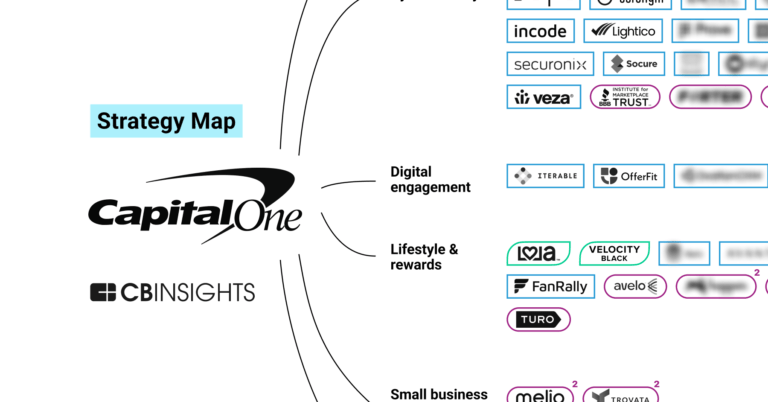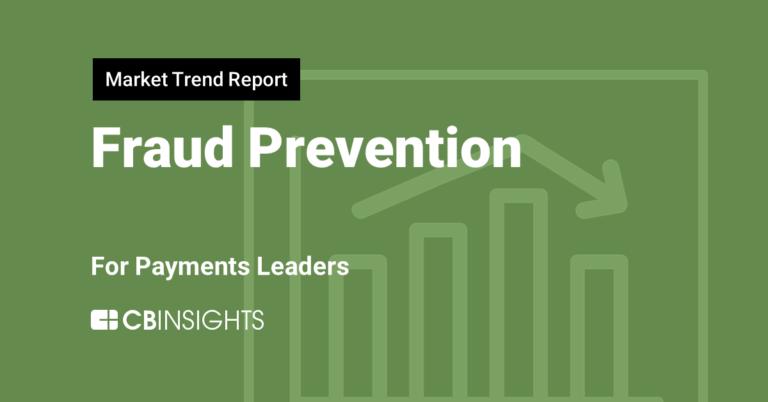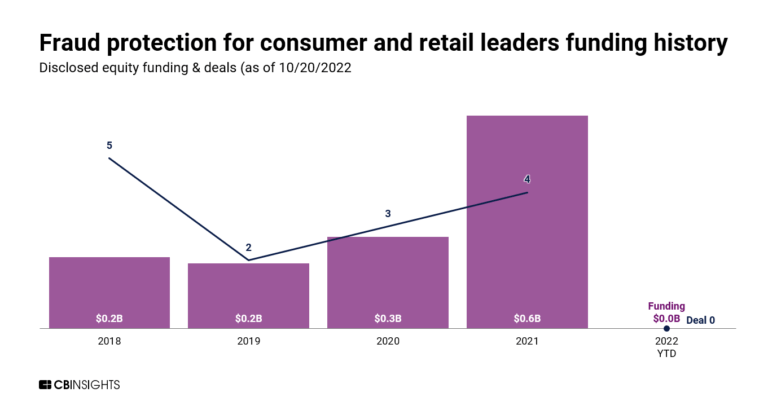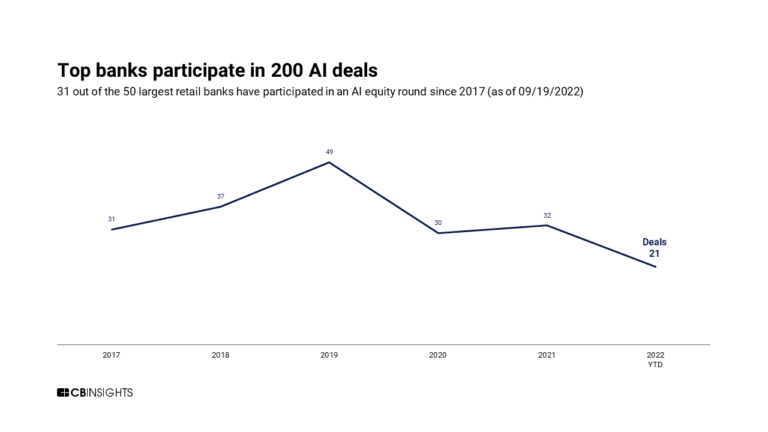
Signifyd
Founded Year
2011Stage
Series E | AliveTotal Raised
$411.2MValuation
$0000Last Raised
$205M | 4 yrs agoRevenue
$0000Mosaic Score The Mosaic Score is an algorithm that measures the overall financial health and market potential of private companies.
-47 points in the past 30 days
About Signifyd
Signifyd provides e-commerce fraud protection and prevention services. The company offers services, including revenue protection, abuse prevention, and payment compliance, all aimed at maximizing conversion and eliminating fraud and consumer abuse. Its services primarily cater to the e-commerce industry. Signifyd was founded in 2011 and is based in San Jose, California.
Loading...
Signifyd's Product Videos


ESPs containing Signifyd
The ESP matrix leverages data and analyst insight to identify and rank leading companies in a given technology landscape.
The payments fraud detection & prevention market offers a range of technologies helping businesses detect and block anomalous payment activity. Vendors in this market cater to many different industries, from financial services to e-commerce. These solutions cover a range of different types of financial fraud like chargebacks, ACH, wire, and credit card fraud. Most providers leverage advanced techn…
Signifyd named as Outperformer among 15 other companies, including Oracle, Mastercard, and Fiserv.
Signifyd's Products & Differentiators
Guaranteed Fraud Protection
Guaranteed Fraud Protection pairs order automation with a financial guarantee against fraud chargebacks on all approved orders. This shifts liability away from the merchant, allowing them to optimize for revenue attainment and pay $0 in fraud losses on approved orders – guaranteed.
Loading...
Research containing Signifyd
Get data-driven expert analysis from the CB Insights Intelligence Unit.
CB Insights Intelligence Analysts have mentioned Signifyd in 9 CB Insights research briefs, most recently on Mar 18, 2024.
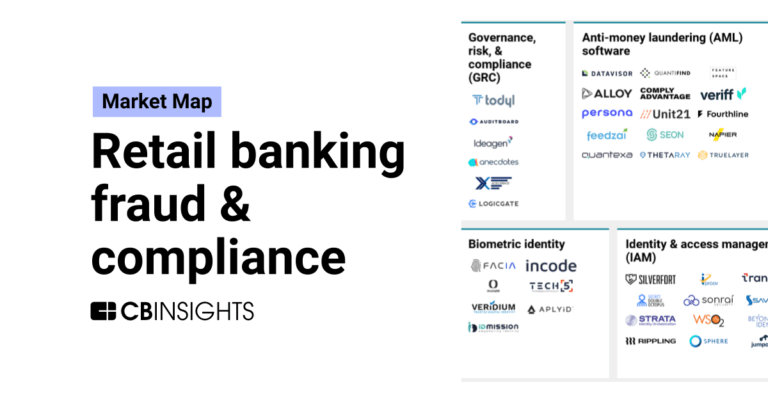
Mar 14, 2024
The retail banking fraud & compliance market map
Dec 14, 2023
Cross-border payments market map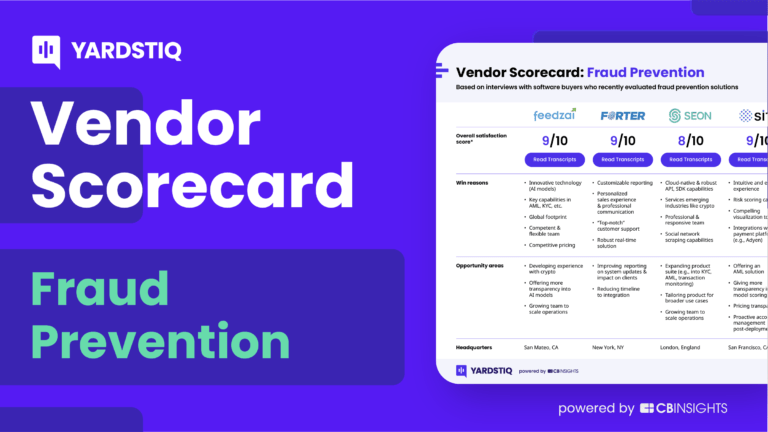
Feb 27, 2023 report
Top fraud prevention companies — and why customers chose themExpert Collections containing Signifyd
Expert Collections are analyst-curated lists that highlight the companies you need to know in the most important technology spaces.
Signifyd is included in 12 Expert Collections, including E-Commerce.
E-Commerce
11,462 items
Companies that sell goods online (B2C), or enable the selling of goods online via tech solutions (B2B).
Unicorns- Billion Dollar Startups
1,270 items
Regtech
1,563 items
Technology that addresses regulatory challenges and facilitates the delivery of compliance requirements. Regulatory technology helps companies and regulators address challenges ranging from compliance (e.g. AML/KYC) automation and improved risk management.
Fintech 100
997 items
250 of the most promising private companies applying a mix of software and technology to transform the financial services industry.
Payments
3,136 items
Companies in this collection provide technology that enables consumers and businesses to pay, collect, automate, and settle transfers of currency, both online and at the physical point-of-sale.
Tech IPO Pipeline
568 items
Latest Signifyd News
Apr 1, 2025
Table of Contents: Ecommerce merchandisers face constant pressure to balance manual merchandising adjustments with conversion growth. AI solutions in ecommerce not only alleviate time constraints, but actively drive revenue by optimizing the product discovery experience and streamlining operational workflows. However, it’s not just about implementing the right mix of AI-driven tools. Below, we'll explore AI-powered solutions for ecommerce that improve personalization, efficiency, and sales. We also share specific enterprise-ready tools and address common questions about AI implementation so you can decide which solutions will best support your business. Benefits of Implementing AI in Ecommerce Operations AI’s positive reach in ecommerce spans across front- and back-end business operations. Here are some of the ways AI solutions in ecommerce are making an impact: Improves Customer Experience : Intelligent algorithms adapt to customer behavior quickly to provide real-time product suggestions, reducing friction in product discovery Increases Efficiency : Automating manual merchandising tasks frees up teams to focus on strategic initiatives Boosts Sales : Because AI-driven tools adapt to forever-changing consumer behaviors at lightning speed, businesses can optimize ecommerce site performance and intelligently drive KPIs Reduces Operational Costs: AI minimizes inefficiencies, automates repetitive tasks, and improves overall resource allocation AI Solutions for Ecommerce Recommendation engines AI-powered recommendation engines analyze browsing behavior, purchase history, and trends to suggest relevant products across the entire on- and offsite product discovery experience . Because they surface the right products at the right time, they drive higher average order value (AOV) and repeat purchases. How they help businesses: Encourage upselling and cross-selling by analyzing shopping patterns Reduce decision fatigue for customers, leading to faster purchases In general, AI-powered recommendations differ by their filtering systems. Constructor Recommendations adapt to different recommendation strategies . For example, the “alternative items” strategy uses natural language processing (NLP) to extract signals from product titles and metadata to improve the quality and density of recommendations. This ensures that suggested products align with user preferences while supporting business KPIs. Chatbots and virtual assistants AI-driven chatbots can benefit an ecommerce business in several ways , from handling customer inquiries to offering personalized support and assisting with transactions. No matter the use case, they’re designed to improve customer satisfaction and operational efficiency. AI shopping assistants , specifically, help to address a few pain points . For instance, if shoppers have a complex need and aren’t sure how to address it (i.e., “show outfits for an outdoor wedding in 90-degree weather”), shopping assistants can return relevant products in seconds. This shoppers time as they surpass the limitations of static search bars, which can misinterpret customer intent. ASA can act as a style assistant, suggesting and showing items aligned to a shopper’s needs, tastes, and intent. Use sentiment analysis to better gauge customer emotions and provide contextually appropriate, personalized responses Return product results, refinement suggestions, site content, guides, and task-specific instructions to aid on the educational journey, turning your platform into a hub for education and learning — not just transactions Search optimization AI-powered search tools improve product discovery by understanding user intent beyond exact keyword matches , ranking the most relevant products based on behavioral data. For instance, instead of simply displaying results that contain the words "laptop," AI-driven search systems assess user preferences, past interactions, and contextual factors to deliver highly relevant, attractive products to the consumer at hand. Considerations for business: Improves conversion rates by aligning search outcomes with shopper intent Encourages faster purchase decisions by bridging the gap between offline inspiration and online shopping, via features like Image Search Search intelligence Additionally, AI-powered search tools don’t just improve search results. They also offer search intelligence , a crucial feature of modern search and product discovery solutions. This capability automatically retrieves analytics and insights from your ecommerce data, helping merchandisers make more informed decisions without constant manual adjustments. It also ensures ongoing optimization and data-driven efficiency for ecommerce businesses. Why it matters: Conclusively determine whether an experience is driving better or worse results without sifting through mountains of data Pinpoint lost revenue opportunities and make high-converting changes in seconds Help merchandisers fine-tune search rankings to create more effective campaigns Customer segmentation and targeted marketing AI segments customers based on shopping behaviors, enabling targeted marketing campaigns that drive engagement and conversions. With select product discovery platforms, merchandisers can categorize users based on shopping behavior to gain analytical insights, impersonate different user segments for testing, and export these segments for external marketing activities. This allows them to monitor how ranking changes for specific groups and tailor their promotional efforts accordingly. Constructor’s Interact dashboard allows merchandisers to explore user profiles and segments for more details, allowing them to more easily step into their customers’ shoes. Allows dynamic pricing and promotions based on customer behavior Improves marketing ROI by focusing on the most valuable customer segments Visual search and image recognition Shoppers are increasingly interested in AI-powered visual search. In fact, the global visual search market is expected to reach $33 billion by 2028 . Similar to Google Lens, Image Search allows shoppers to upload images and receive visually similar product results from your business’ ecommerce catalog. It contributes to a seamless and intuitive shopping experience, leading to more conversions overall. Key advantages: Bridges the gap between offline inspiration (e.g., seeing a product in-store) and online shopping Increases conversion rates for visually-driven industries like fashion and home decor Voice commerce integration Voice-enabled AI facilitates hands-free shopping experiences, allowing customers to purchase products via voice commands. This increases both ease and accessibility. Challenges and considerations: Optimize for conversational queries rather than just keywords Integrate with voice assistants like Alexa, Google Assistant, and Siri Dynamic pricing strategies AI-driven pricing models analyze competitor pricing, demand trends, and user behavior to adjust prices in real time. Doing so can help businesses maximize both their revenue and their competitiveness. How it impacts businesses: Maximizes profit margins by dynamically adjusting pricing based on demand Reduces manual price-setting efforts and human error One option for an enterprise-ready tool is PROS Smart Price Optimization , which uses AI to implement real-time pricing strategies. Predictive analytics for sales forecasting AI uses historical data and market trends to predict future sales, helping businesses make data-driven inventory and marketing decisions. Key considerations: Helps retailers plan seasonal stock adjustments effectively Enhances marketing planning by anticipating consumer demand shifts One solution is SAP Integrated Business Planning , which leverages AI for demand forecasting and sales optimization. Another is IBM Planning Analytics , which similarly provides predictive insights based on customer purchasing patterns. Inventory and supply chain automation AI optimizes inventory management and supply chain logistics by forecasting demand, automating restocking, and reducing waste. Why it’s valuable: Reduces operational inefficiencies through automated restocking Enhances vendor coordination by providing real-time demand insights A few tools can help your business if you’re looking to streamline your inventory management. Blue Yonder Luminate offers AI-driven demand forecasting and warehouse optimization. Oracle SCM Cloud similarly automates supply chain operations using machine learning models. Fraud detection and prevention How it strengthens ecommerce security: Reduces chargebacks and fraud-related financial losses Detects unusual purchasing behavior before fraudulent transactions occur Strengthens compliance with security regulations by automating risk assessments If you want to ramp up your security measures, consider Signifyd , which uses AI to analyze transactions and prevent fraudulent activities. Feedzai also provides AI-driven risk management for ecommerce fraud prevention. How to Get Started with AI Solutions in Ecommerce Implementing AI in ecommerce requires a strategic approach for seamless integration and maximum impact. The following steps outline a quick, practical roadmap for businesses looking to enhance their ecommerce operations with AI-driven solutions. Identify bottlenecks in merchandising workflows: Determine which areas of your ecommerce operations require optimization Start with a core function: Focus on an impactful area, such as search and product discovery Evaluate AI solutions that integrate with existing platforms: Choose tools that complement and integrate seamlessly with your current infrastructure Run an AI-driven audit : Assess revenue uplift potential with AI-powered search and discovery Continuously optimize: Use AI insights to refine performance and adapt to evolving consumer behavior AI-Driven Product Discovery: The Future of Ecommerce Profitability AI doesn’t replace merchandisers — it enhances their ability to make data-driven decisions that drive growth. Enterprise ecommerce teams that leverage AI will gain a competitive edge financially and operationally, making these solutions table stakes for the future of ecommerce and personalized shopping experiences that convert Request a complimentary search and product discovery audit to explore how glassbox AI can maximize your ecommerce potential. What are AI solutions in ecommerce? AI solutions in ecommerce refer to machine learning-driven technologies that enhance various aspects of online retail, including product discovery, customer service, inventory management, and fraud prevention. How do AI solutions improve customer experience in online retail? AI improves customer experience by offering personalized recommendations , predictive search capabilities, and real-time support through AI shopping assistants . Together, these enhancements create a smoother, more efficient shopping journey. What challenges do businesses face when integrating AI into ecommerce? Common concerns include those about in-house development, unclear ROI, and implementation timelines. Here are some common objections to AI, explained: Objection: "Our IT team prefers to build in-house." Proprietary AI solutions require significant ongoing resources and are difficult to maintain at scale. Many businesses find that partnering with AI providers reduces long-term costs and improves performance. Objection: "ROI is unclear." Case studies show that AI-driven tools significantly increase conversion rates, revenue, and customer retention. Businesses can use pilot programs or complimentary A/B testing to measure AI’s impact before full implementation. Objection: "Implementation takes too long." Many AI providers offer phased adoption strategies, allowing businesses to see quick wins while gradually expanding AI capabilities — all without disrupting existing operations. Common challenges include integration complexity, data privacy concerns, and ensuring AI aligns with business goals. Partnering with an experienced provider can mitigate these issues. How can businesses measure the impact of AI in ecommerce? KPIs such as conversion rate, AOV, and customer retention rates help measure AI's impact. AI-driven analytics tools provide insights into customer behavior and revenue growth. How can ecommerce businesses get started with AI implementation? Businesses should begin with auditing their current platform to identify areas for improvement, select AI tools that integrate seamlessly with their current tech stack, and continuously refine AI models based on real-time data insights. How is AI transforming various aspects of the ecommerce industry? AI is enhancing personalization, automating operational workflows, and optimizing customer interactions. From AI-powered search engines that improve product discoverability to predictive analytics that refine inventory management, AI solutions drive efficiency and revenue growth. Businesses using AI can offer smarter recommendations, automate dynamic pricing, and streamline fraud detection — ultimately creating a more seamless shopping experience. What's next? Uncover lost revenue opportunities with a complimentary Search Experience Audit. According to the 2024 State of Ecommerce Search & Product Discovery Survey, nearly 70% of shoppers think the search function on retail websites needs an upgrade. Our team has run over 1000 A/B tests to identify easy-to-implement algorithmic and UX improvements that get results. Use their research to your advantage with a complimentary Search Experience Audit — no strings attached.
Signifyd Frequently Asked Questions (FAQ)
When was Signifyd founded?
Signifyd was founded in 2011.
Where is Signifyd's headquarters?
Signifyd's headquarters is located at 99 Almaden Boulevard, San Jose.
What is Signifyd's latest funding round?
Signifyd's latest funding round is Series E.
How much did Signifyd raise?
Signifyd raised a total of $411.2M.
Who are the investors of Signifyd?
Investors of Signifyd include FIS, Owl Rock Capital Group, CPP Investments, Neuberger Berman, Menlo Ventures and 16 more.
Who are Signifyd's competitors?
Competitors of Signifyd include Vesta, ClearSale, UrbanFox, Ravelin, Behavox and 7 more.
What products does Signifyd offer?
Signifyd's products include Guaranteed Fraud Protection and 4 more.
Who are Signifyd's customers?
Customers of Signifyd include Walmart, Mango, UrbanStems and Samsung.
Loading...
Compare Signifyd to Competitors

Sift operates in the fields of cybersecurity and financial technology. Its main offerings include a platform that uses machine learning and user identity verification to address fraud, including account takeover, payment fraud, and policy abuse. Sift serves sectors that require digital trust solutions, such as e-commerce, fintech, and online marketplaces. Sift was formerly known as Sift Science. It was founded in 2011 and is based in San Francisco, California.

Forter specializes in identity intelligence for digital commerce, focusing on fraud prevention and customer security across digital platforms. The company provides services including fraud management, payment optimization, chargeback recovery, identity protection, and abuse prevention, aimed at improving security and efficiency in online transactions. Forter's solutions are utilized by sectors within the digital commerce industry to support processes for businesses and consumers. Forter was formerly known as Ryzyco. It was founded in 2013 and is based in New York, New York.
FUGU specializes in payment fraud prevention and operates within the financial technology sector. The company offers a suite of services that analyze transactions throughout the entire lifecycle, from pre-checkout to post-purchase, to identify and prevent various types of fraud, automate Know Your Customer (KYC) verifications, and manage chargebacks. FUGU's solutions are designed to reduce false declines, minimize operational costs, and provide a chargeback guarantee to online sellers and payment service providers. It was founded in 2017 and is based in Tel Aviv, Israel.

Shield is a device-first risk AI platform that specializes in fraud prevention and risk intelligence within the digital business sector. The company offers solutions to identify and eliminate fraudulent activities through global standard device identification and actionable risk intelligence. Shield primarily serves industries such as ride-hailing, social media, e-commerce, digital banking, and gaming. Shield was formerly known as CashShield. It was founded in 2008 and is based in Singapore.

Fraud.net specializes in AI-powered fraud detection and prevention for various industries, including financial services and e-commerce. The company offers a suite of services that include real-time transaction monitoring, identity verification, and anti-money laundering (AML) compliance. Fraud.net's solutions cater to sectors such as financial services, e-commerce, travel, and government. It was founded in 2015 and is based in New York, New York.

Vesta specializes in fraud prevention and payment processing for the telecommunications sector. The company offers AI-driven fraud detection and prevention services, payment processing, and risk management solutions to telecoms. Vesta was formerly known as Carrier Services. It was founded in 1995 and is based in Lake Oswego, Oregon.
Loading...

